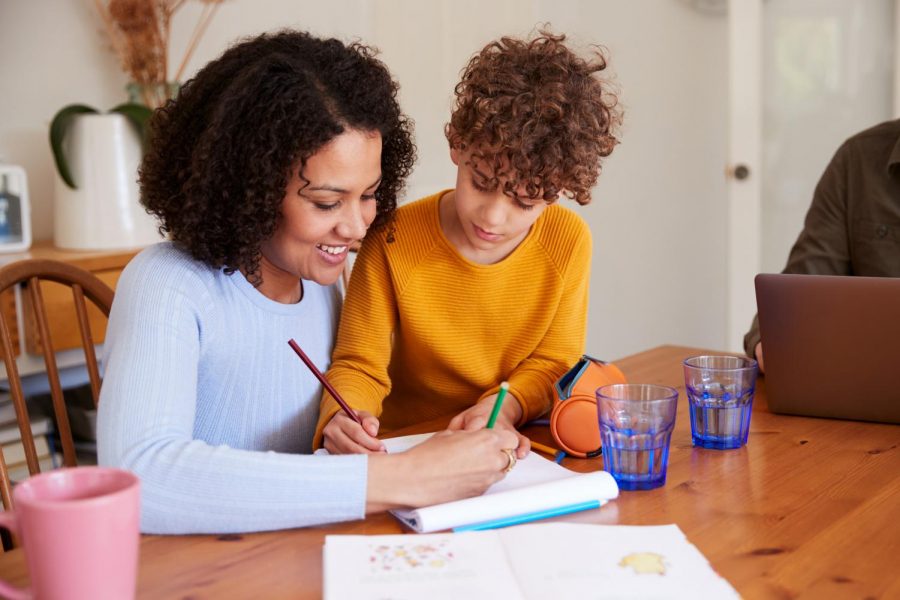It is no surprise that COVID-19 has had an enormous impact worldwide. With most college campuses switched to online back in March, President Donald Trump recommending social gathering be limited to 10 people, many losing their jobs, kids are out of school, lines to get into stores wrapping around the parking lots, limits on quantity of what you can purchase, and stay at home orders.
This time has been especially difficult for parents of young children. The pressure and struggle to home-school their children has created undue stress within the home, more so within the homes of essential workers. It is still unclear how long establishments such as schools will be closed. However, according to NBC News San Diego, Gov. Gavin Newsom released the statement, “I would plan and assume it is unlikely that many of these schools, few if any, will open before summer break.”
Social distancing has gone from a recommendation to a requirement. Even the floors of many stores like Walmart have implemented social distancing reminder stickers both near checkout lines and throughout the stores.
Parents have become solely responsible for their child’s education, on top of coming up with physical activities for their children because parks are closed, and even juggling the emotions of their children as well as their own; not to mention, if the parent is an essential worker, they have to figure out who will babysit their child in the midst of social distancing and stay-at-home orders.
It is clear that the goal is health, safety and security, yet there is no definite end in sight. So while the goal is maintaining physical health, mental and emotional health may have been forgotten. According to www.goodhousekeeping.com, a survey was done that determined 78% of moms report they put off taking care of their own health. As a parent, those numbers seem pretty accurate. With that in mind, the situation of COVID-19 and an unknown time-frame in which children will be returning to school generates valid concern for those parents home with their children. Whether or not self-care is being remembered or implemented, a parent’s emotions tend to spill onto their children through misdirected frustration.
Luckily, many school districts are supporting families at this time. Some schools even offer drive-thru lunches until students are able to return. Countless websites have now created COVID-19-tailored resources such as www.childrensinstitute.net, which offers ways to support kids and teens through the COVID-19 pandemic. A few are supporting your child’s emotional well-being and several links to activity ideas for children and their parents.
According to www.gallup.com, 70% of parents say their child is now participating in online learning run by their school, 42% of parents are concerned about the potential negative impact this pandemic will have on their child’s education, and 27% think the school year should extend through summer.
Personally, I don’t see a feasible option in sight to prevent educational regression. A parent’s job is to keep their child’s well-being at the forefront of their minds. If we are doing our best to foster learning in our children, then we’re doing something positive. Schooling through summer is a possible option as well, however, that sounds like something that would be optional.
In times like these, all parents can do is maintain a positive mental attitude, do what we can, spend time with and appreciate those we love, be productive, and wait.


